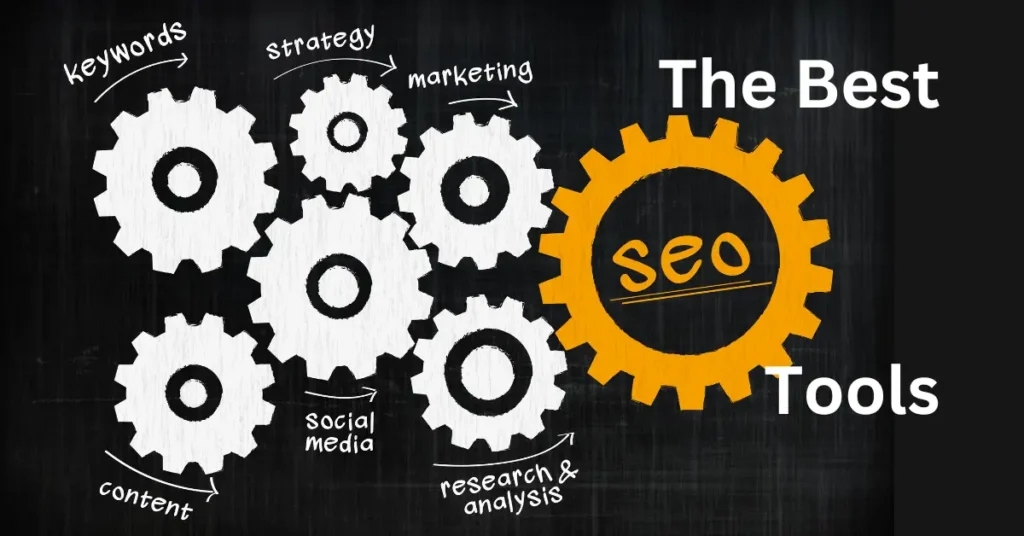The BEST SEO TOOLS FOR SMALL BUSINESSES
Discover how SEO tools can revolutionize your small business by boosting visibility, driving traffic, and increasing conversions. Learn how to choose and utilize the best SEO tools to streamline your digital marketing strategy. How to Transform Your Small Business with the Right SEO Tools? In today’s hyper-competitive digital environment, small businesses must adopt strategic approaches to ensure their survival and growth. The internet has become the primary channel for discovering services and products, making it essential for companies to maintain a strong online presence. Search Engine Optimization (SEO) tools are pivotal in helping businesses improve their visibility, attract more customers, and establish authority within their niche. These tools provide actionable insights into how search engines perceive your website and help optimize your content to rank higher in search results. By effectively leveraging SEO tools, small businesses can bridge the gap between their offerings and the needs of their target audience. Whether you’re looking to rank locally, nationally, or globally, understanding and using SEO tools can be a game-changer for your business. Why SEO Tools Are Essential for Small Businesses Small businesses often operate with limited resources. SEO tools help streamline digital marketing efforts, enabling you to: Identify relevant keywords your audience searches for. Monitor website performance and user behavior. Optimize your site’s content and technical aspects. Build high-quality backlinks to boost domain authority. Overview of Benefits and Challenges Using SEO tools effectively can lead to significant growth, but challenges like cost, complexity, and keeping up with ever-changing algorithms can arise. This article explores the best SEO tools for small businesses to ensure a balance between affordability and functionality. Importance of Keyword Research Keyword research is the cornerstone of any successful SEO strategy. It ensures you target the correct search queries, increasing your chances of appearing in relevant search results. Tools like Google Keyword Planner, SEMrush, and Ahrefs are industry leaders in this domain. Budget-Friendly Keyword Research Cost-effective options are vital for small businesses. Free or affordable tools like Ubersuggest and Keyword Surfer offer robust features without breaking the bank. While premium tools provide advanced insights, budget-friendly alternatives can deliver actionable data for startups. Key Benefits of SEO Tools for Small Businesses 1. Keyword Discovery Keyword research is at the heart of any successful SEO strategy. Keywords are the terms and phrases users type into search engines to find information, products, or services. SEO tools simplify the process of discovering the best keywords to target for your business. Why Keywords Matter: Keywords connect your content to the user’s search intent. Choosing the right keywords can increase organic traffic, improve engagement, and raise conversion rates. Features of SEO Tools for Keyword Discovery: Search Volume Analysis: Tools like Google Keyword Planner and SEMrush reveal the number of searches a keyword gets monthly. It helps you prioritize terms that attract meaningful traffic. For instance, if “organic skincare for acne” has a higher search volume than “natural face cream,” focusing on the former could drive better results. Competition Metrics: Low-competition keywords offer an easier path to ranking. Tools like Ahrefs and MOZ provide keyword difficulty scores, enabling you to identify terms where your small business can compete effectively. Trend Monitoring: Mastering seasonal and industry trends is crucial for maintaining the relevance of your content. Tools like Google Trends are invaluable for pinpointing when specific keywords surge in popularity, allowing you to proactively prepare for demand spikes. To maximize visibility, businesses must strategically target both high-traffic searches and niche-specific queries by leveraging a blend of short-tail and long-tail keywords. Content Optimization Once keywords are identified, the next step is effectively integrating them into your content. SEO tools assist in crafting high-quality, keyword-rich content that aligns with search engine algorithms while remaining engaging for readers. High-quality, search-engine-optimized content is the cornerstone of successful SEO. Here’s how to leverage tools for maximum impact: Refining Meta Tags and Headers Meta Tags: Use descriptive and keyword-rich meta titles and descriptions to improve click-through rates (CTR). Headers: Organize content with structured headings (H1, H2, H3) to enhance readability and SEO. Enhancing Keyword Density: Tools like SEMrush and Yoast SEO analyze keyword usage and provide suggestions for maintaining optimal density. Avoid keyword stuffing; focus on naturally incorporating primary and secondary keywords. Aligning Content with Search Intent: Understand user intent (informational, transactional, or navigational) and craft content that answers specific queries. Tools like AnswerThePublic and BuzzSumo help identify trending topics and popular questions in your niche. Visual Content Optimization: Compress images using tools like TinyPNG for faster loading. Use descriptive alt text for all images to improve accessibility and rankings. How SEO Tools Enhance Content Keyword Placement: Tools like Yoast SEO guide optimal keyword placement in titles, headers, and body content. For example, using the keyword “affordable website design for small businesses” in your H1 tag and introduction increases relevance. Readability Analysis: SEO tools ensure your content is easy to read and engaging. Clear, concise, and structured content improves user experience and keeps readers on your page longer. Competitor Insights: Tools like SEMrush allow you to analyze top-performing competitor content. It helps you understand what works and craft better content. Site Performance and Technical SEO A technically optimized website lays the foundation for effective SEO. SEO tools identify and fix issues that may hinder your website’s performance. Technical SEO ensures your website is functional, fast, and accessible across all devices. Key aspects include: Detecting Broken Links Broken links frustrate users and harm rankings. Tools like Screaming Frog and Ahrefs identify and fix broken internal and external links. Improving Site Speed Slow websites deter users and lead to higher bounce rates. Use Google PageSpeed Insights and GTmetrix to pinpoint and resolve speed bottlenecks. Enable caching, compress images, and minimize CSS/JavaScript for faster performance. Ensuring Mobile Responsiveness A significant portion of traffic comes from mobile devices. Test your site’s mobile usability using Google’s Mobile-Friendly Test. Optimize for touch-friendly navigation, responsive design, and fast loading on mobile networks. Securing Your Website HTTPS is a ranking factor. Ensure your site uses an SSL certificate for secure

